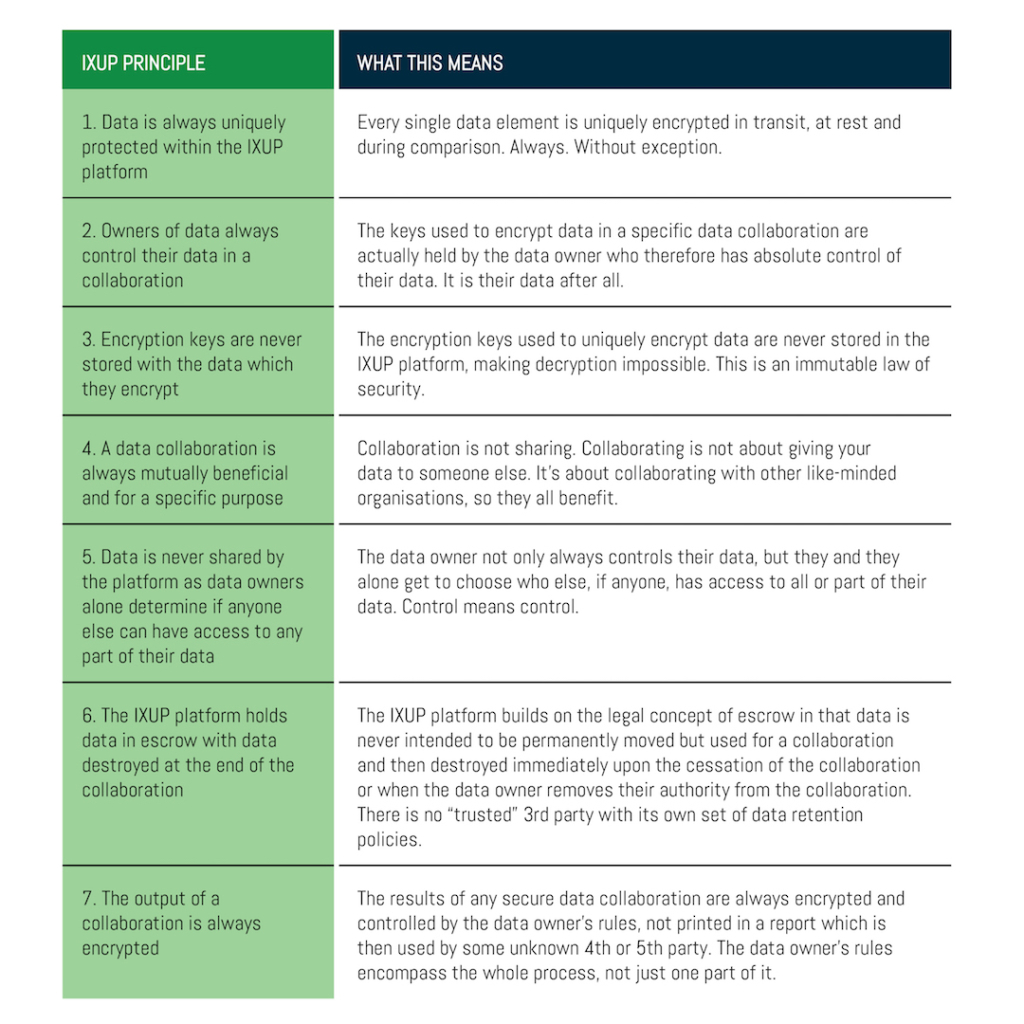A principled approach to software development
IXUP’s absolute adherence to seven principles ensured software that was uncompromising to the sovereignty and security of data. This created a new style of project management that IXUP chief technology officer Paul Coe had not experienced in two decades of developing software.
Software developers typically have three levers at their disposal when they are striving to deliver a product release – scope, time, and budget. The delivery date may be pushed out to deliver to the scope and quality desired. The scope of the project may also be re-shaped to change the work needed to meet a deadline and budget. And budgets may also be adjusted, with a corresponding impact on the quality of the software. Software developers are used to facing this compromise.
Another important aspect of the project can also be affected: your ability to manage the expectations of the team working on the project. Constantly shifting the parameters can be frustrating for the developers, particularly if they have to work long hours to hit objectives that keep changing.
The development of IXUP’s secure data collaboration platform deviated from the typical experience thanks to our absolute and unwavering commitment to the core principles upon which the organisation was founded.
IXUP’s core principles are the basis we use to embed security at the core of everything we do. These principles are:

The Core principles didn’t replace the three levers – rather, they established the project’s non-negotiable parameters. Not one of the core principles could be compromised – it was all or nothing if we were to achieve what we set out to do: to create a platform where organisations could be confident that they were collaborating securely using their respective datasets, but without losing control or jeopardising security.
At IXUP we know that for any organisation to share data is to flirt with disaster. Just last week, in early June, we saw PageUp, the HR software provider, providing an apt example. The company announced that some client data could have been compromised, and in the aftermath, it was reported that several organisations were affected, including some Australian universities, Australia Post, Coles, Telstra, Commonwealth Bank, Lindt, Aldi, NAB, Medibank and the Reserve Bank of Australia. This led to a flood of companies pulling down their job pages online for fear that private data would be breached.
Never sharing data is the bedrock of IXUP’s Core principles, and from the start provided a clear focus for the project. Having such a rigid framework made making decisions a lot easier – they were black or white, yes or no. There were no grey areas, no ‘maybes’. And we won’t compromise them even if a customer requests it.
It also meant the team working on the software was very clear about expectations from the outset. In contrast to a situation where the three levers are constantly in motion, the parameters of our project were fixed and communicated to everyone in the team.
We couldn’t change the deadline, budget or scope. The security feature of the product was sacrosanct, and the budget was fixed. However, while it meant very long hours became the norm, the team knew and understood why. From a project management perspective, it is much easier to manage a team that has clarity of purpose. This was one of the unique aspects of the management of the project, and one I have not experienced in 20 years of software development. It was a “higher purpose”, a noble pursuit with privacy and security at the core.
From a project management perspective, having an overarching purpose and very clearly defined, unequivocal principles make decision-making easier, while good team management is supported by being able to communicate expectations in the very early stages.
The outcome is software that has sacrificed nothing in achieving a secure platform for organisations to collaborate. IXUP’s unyielding application of the seven principles in developing the platform means clients have total clarity and confidence in the fact that there were no shortcuts or workarounds.
By Paul Coe, IXUP Chief Technical Officer
